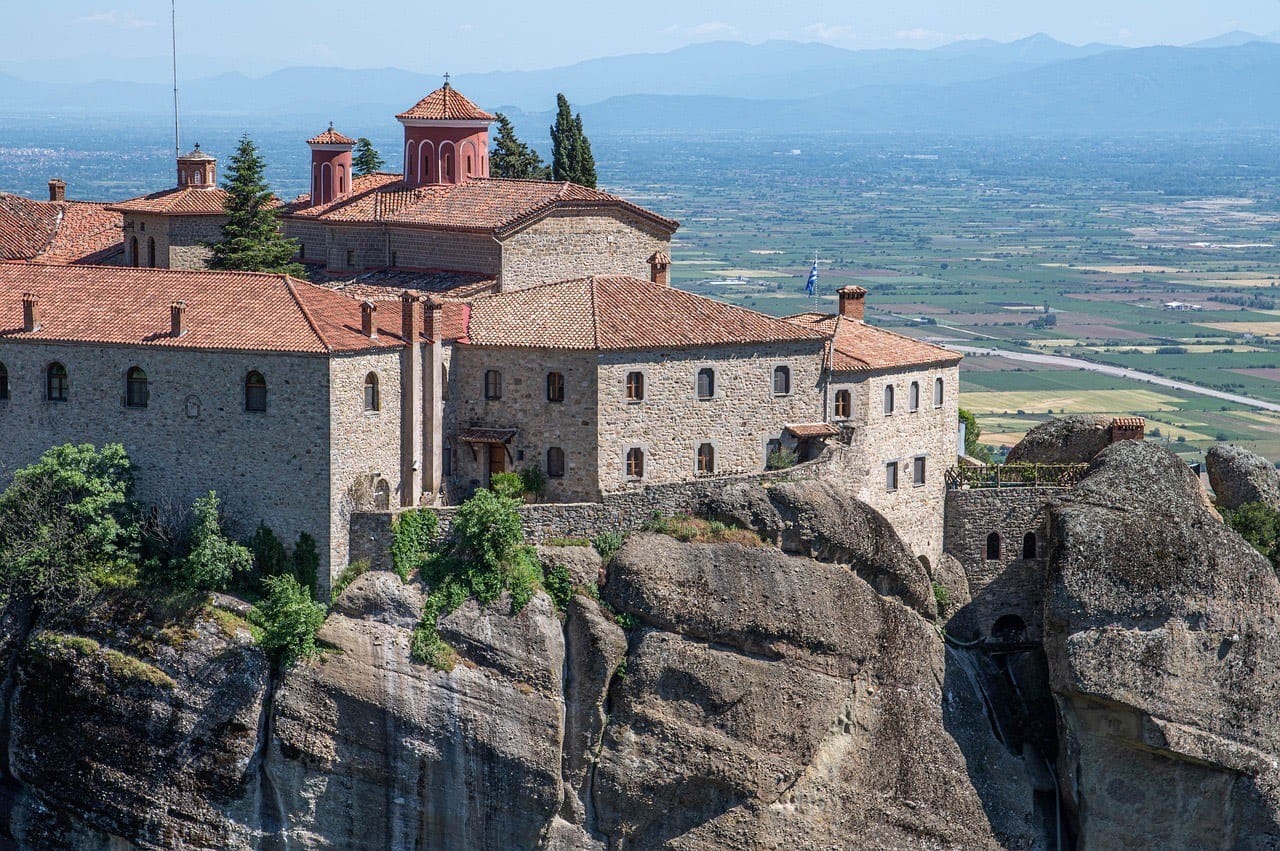When is the best time to visit Greece? It’s a question many travelers ask when planning their trip. Greece, with its rich history, stunning landscapes, and vibrant culture, is a year-round destination, offering something unique in every season. Whether you’re looking to explore ancient ruins, enjoy the pristine beaches, or immerse yourself in local culture, understanding what each season has to offer will help you make the most of your journey. In this guide, we’ll explore the best times to visit Greece and what makes each season special, so you can plan the perfect adventure.
Spring (March to May): A Time of Mild Weather and Blooming Landscapes
If you’re wondering when is the best time to visit Greece for mild weather and outdoor exploration, spring is a perfect choice. The weather is pleasantly warm, making it ideal for visiting ancient sites, such as the Acropolis or Delphi, without the heat of summer. It’s also a great time for hiking, as the countryside comes alive with blooming wildflowers, and the trails are less crowded.
For those who enjoy the outdoors, consider heading to the Peloponnese or Northern Greece, where you can explore nature reserves and take part in activities such as kayaking or birdwatching.
Why visit Greece in spring?
- Mild weather is ideal for sightseeing and outdoor activities.
- Fewer tourists, making it easier to enjoy key attractions.
- Perfect for nature lovers, with wildflowers blooming across the countryside.
Summer (June to August): The Season of Sun, Sea, and Island Hopping
Summer in Greece offers the quintessential beach experience, with long sunny days and crystal-clear waters of the Aegean Sea. It’s an ideal time for beach lovers who enjoy swimming, sailing, and paddleboarding. For those who prefer island hopping, the Sporades islands (Skiathos, Skopelos, and Alonissos) provide a perfect balance of beautiful beaches and lush green landscapes, making them a popular yet serene choice.
Beyond the islands, the beaches of northern Greece offer equally stunning destinations. Halkidiki, with its three distinct peninsulas, is known for its turquoise waters and scenic coastlines, while Epirus, with its picturesque towns like Sivota and Parga, boasts some of the most beautiful beaches in the country. These regions combine natural beauty with rich cultural experiences, making them excellent summer choices.
Why visit Greece in summer?
- Perfect for beach vacations in crystal-clear waters.
- Great for island hopping in scenic locations like the Sporades.
- Ideal for water activities such as sailing, diving, and paddleboarding.
Tip: For a mix of beach relaxation and cultural exploration, consider destinations like Halkidiki or the beaches of Epirus, where you’ll find spectacular landscapes, vibrant local life, and plenty of summer activities to enjoy.
Autumn (September to November): The Perfect Time for Culture, Wine, and Adventure
Autumn is arguably one of the best times to visit Greece. The weather remains warm, but the summer crowds have thinned out, making it perfect for exploring ancient sites and vineyards. In September, many parts of Greece celebrate the harvest season, which means it’s a great time for wine-tasting tours in many destination.
Additionally, autumn is the perfect season for agrotourism activities like olive-picking and participating in traditional Greek farming events. Outdoor enthusiasts will also love the opportunities for hiking and kayaking, especially as the heat of summer gives way to cooler, more comfortable temperatures.
Why visit Greece in autumn?
- Perfect weather for sightseeing, with fewer crowds.
- Great for food and wine festivals, olive picking, and cultural events.
- Ideal for outdoor activities like hiking and kayaking.
Winter (December to February): Discover a Different Side of Greece
Though most people associate Greece with summer, winter offers a quieter, more reflective experience. The big cities like Athens and Thessaloniki remain vibrant, with fewer tourists, making it the ideal time to explore their rich history and cultural attractions without the hustle and bustle of peak season.
Winter in Greece also opens up opportunities for skiing and snowboarding in the mountainous regions of northern Greece, where the climate is colder than the southern areas. Popular ski resorts include Kaimaktsalan (Voras Mountain), and Metsovo, home to the Anilio and Karakoli ski centers. These destinations provide excellent conditions for winter sports, while also offering cozy mountain villages perfect for relaxation.
Why visit Greece in winter?
- Enjoy cultural landmarks like the Acropolis Museum without crowds.
- Skiing and snowboarding in northern Greece’s top ski resorts.
- Cozy mountain escapes and city experiences in Athens and Thessaloniki.
Off-Season Travel: October to March – The Hidden Gem
Traveling to Greece in the off-season, particularly between October and March, has its own benefits. You’ll experience lower prices, less traffic, and more intimate experiences with the local culture. This period is perfect for travelers looking for a quieter, more relaxed pace without the hustle of tourist season. Additionally, off-season travel is more sustainable, helping to reduce the strain on the environment and local communities.
Off-season travel benefits:
- Lower prices on flights, accommodation, and tours.
- Fewer tourists, allowing for a more authentic experience.
- Less traffic and congestion in popular areas.
- A more sustainable way to travel, benefiting local communities.
Why Choose Offbeat Travel to Plan Your Visit?
When planning your trip to Greece, working with a local travel agency like Offbeat Travel can help you uncover hidden gems and unique experiences, no matter the season. With their in-depth knowledge of Greece’s landscapes, culture, and seasonal highlights, Offbeat Travel specializes in crafting small group tours, whether you’re visiting in spring for wildflowers, in summer for the beaches, or in autumn for wine tasting. Let their expertise guide you to the best that Greece has to offer, year-round.



